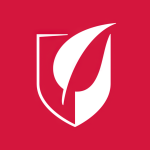Welcome to our dedicated page for Gilead Sciences news (Ticker: GILD), a resource for investors and traders seeking the latest updates and insights on Gilead Sciences stock.
Gilead Sciences, Inc. (Nasdaq: GILD) is a biopharmaceutical company focused on medicines for HIV, viral hepatitis, COVID‑19, cancer and inflammation. The GILD news feed highlights how the company’s research, collaborations and policy decisions translate into clinical programs, regulatory milestones and access initiatives across these therapeutic areas.
Investors and healthcare observers following GILD news will see regular updates on Gilead’s HIV portfolio, including clinical trial readouts such as the Phase 3 ARTISTRY‑1 and ARTISTRY‑2 studies of an investigational single‑tablet regimen combining bictegravir and lenacapavir for virologically suppressed adults with HIV. News also covers developments related to lenacapavir as a long‑acting option for HIV prevention and treatment, as well as agreements affecting key products like Biktarvy, including patent settlements disclosed by the company.
Oncology and cell therapy news is another major theme. Through Kite, a Gilead company, GILD‑related releases feature data on Yescarta for relapsed or refractory large B‑cell lymphoma, next‑generation bicistronic CAR T‑cell candidates KITE‑753 and KITE‑363 for B‑cell lymphomas, and anitocabtagene autoleucel (anito‑cel) for relapsed or refractory multiple myeloma. Updates often include efficacy and safety results from pivotal and early‑stage trials, as well as details on collaborations such as the partnership with Arcellx on anito‑cel and the research collaboration with OncoNano Medicine on ON‑BOARD encapsulation technology.
Gilead news also reflects broader corporate and policy activity, including agreements with the U.S. government related to drug pricing and access, philanthropic grants from the Gilead Foundation for metastatic breast cancer support, leadership appointments, investor conference presentations and quarterly financial announcements. Bookmark this page to monitor how these scientific, commercial, governance and access‑related developments shape the ongoing story of GILD.
1. Late-breaking results from Phase 3 ASCENT-04 study showing significant benefit of Trodelvy® plus Keytruda® in first-line PD-L1+ metastatic triple-negative breast cancer
2. Phase 1 results of a novel CAR T-cell therapy using dual-target approach for recurrent glioblastoma, presented by University of Pennsylvania researchers
3. Updated findings from Phase 2 iMMagine-1 study of anitocabtagene-autoleucel in relapsed/refractory multiple myeloma
The presentations span multiple cancer types including breast cancer, solid tumors (glioblastoma, endometrial cancer, lung cancer, gastric cancer), and blood cancers (multiple myeloma, large B-cell lymphoma, non-Hodgkin lymphoma, acute lymphoblastic leukemia).Gilead Sciences has announced its executive participation in five major healthcare investor conferences scheduled for May and June. The conferences include:
- BofA Securities Health Care Conference - May 13, 11:20 AM PT
- RBC Capital Markets Global Healthcare Conference - May 21, 11:30 AM ET
- Bernstein Annual Strategic Decisions Conference - May 29, 2:30 PM ET
- Jefferies Global Healthcare Conference - June 4, 11:05 AM ET
- Goldman Sachs Annual Global Healthcare Conference - June 10, 11:20 AM ET
All presentations will be available via live webcasts on the company's investor page at investors.gilead.com, with replays accessible for at least 30 days after each event. Gilead, headquartered in Foster City, California, is a biopharmaceutical company focused on developing innovative medicines for HIV, viral hepatitis, COVID-19, and cancer treatments.
Gilead Sciences announced new research presentations at the 2025 European Association for the Study of the Liver (EASL) Congress, showcasing advancements in liver disease treatments. Key highlights include:
- New data on Livdelzi (seladelpar) demonstrating effectiveness in reducing pruritus in primary biliary cholangitis (PBC) patients
- Findings on maintained virologic response with investigational bulevirtide in hepatitis delta virus (HDV) patients
- Initial results from a Phase 1a study of a novel therapeutic vaccine for hepatitis B (HBV)
- Real-world data on hepatitis C (HCV) treatment effectiveness
The company will present 29 abstracts, including two oral presentations on HDV treatment and a late-breaker presentation on the MYR301 Phase 3 study results. Additionally, Gilead will launch "All the Feelings with PBC" campaign with the PBC Foundation, featuring artwork depicting patient experiences.
The presentations reinforce Gilead's commitment to transforming liver disease treatment, particularly in areas of high unmet need.
Contineum Therapeutics (NASDAQ: CTNM) has appointed Timothy Watkins, M.D., M.Sc. as its new Chief Medical Officer and Head of Development. Dr. Watkins, formerly Vice President at Gilead Sciences, brings extensive experience in immunology and fibrotic disease therapeutic development.
Key highlights:
- Dr. Watkins succeeds Stephen L. Huhn, who served as CMO since 2020
- Company plans to initiate Phase 2 clinical trial for idiopathic pulmonary fibrosis in second half of 2025
- Dr. Watkins received inducement awards including: - Time-based stock option for 260,000 shares - Performance-based stock option for 26,000 shares
The appointment aligns with Contineum's enhanced focus on inflammation, immunology, and fibrotic disease development. The company's pipeline includes PIPE-307 for multiple sclerosis and depression, developed in partnership with Johnson & Johnson.

